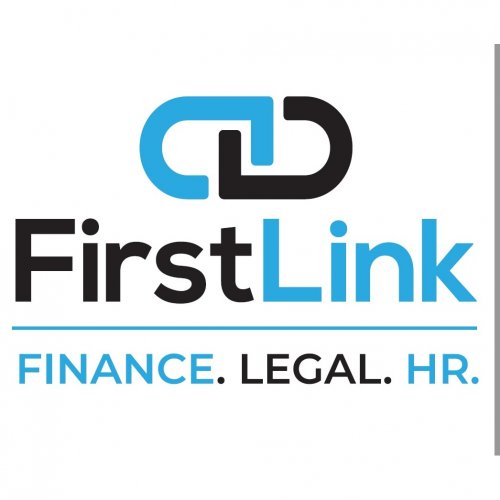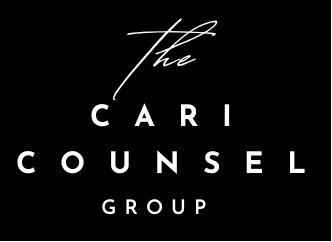Best Elder Abuse Law Lawyers in Trinidad and Tobago
Share your needs with us, get contacted by law firms.
Free. Takes 2 min.
Or refine your search by selecting a city:
List of the best lawyers in Trinidad and Tobago
Trinidad and Tobago Elder Abuse Law Legal Questions answered by Lawyers
Browse our 1 legal question about Elder Abuse Law in Trinidad and Tobago and read the lawyer answers, or ask your own questions for free.
- How to deal with executive that does not communicate?
- I am writing to seek guidance regarding a personal matter involving my father’s estate. My father passed away in Trinidad in February 2023, and I subsequently learned that a friend of his had been appointed executor of his will. The estate is to be divided among myself, the executor, and... Read more →
-
Lawyer answer by Law Office of Charles and Associates
Was the will prepared by a Lawyer or Law Firm in Trinidad and Tobago. If so, you can verify with the Law Firm whether it is an accurate copy of the instructions taken from your father and the Last Will...
Read full answer
About Elder Abuse Law in Trinidad and Tobago
Elder abuse law in Trinidad and Tobago is designed to protect older individuals from a range of abuses, including physical, emotional, financial, and neglect. With an increasing aging population, this area of law has become vital in ensuring that the rights and well-being of senior citizens are upheld. The protection of elders is addressed through a combination of statutes, regulations, and policy measures aimed at safeguarding their dignity and rights.
Why You May Need a Lawyer
Legal assistance may become necessary in several situations related to elder abuse, including but not limited to:
- Suspected physical or emotional abuse by caregivers or family members.
- Financial exploitation involving fraudulent transactions or undue influence.
- Cases of neglect where an elder's basic needs are not being met.
- Disputes over guardianship or power of attorney.
- Establishing conservatorship to protect an elder's finances and assets.
- Pursuing damages for harm caused through abuse or neglect.
A lawyer can provide legal advice, represent an elder or their family in court, and help navigate complex legal procedures to ensure protection and justice.
Local Laws Overview
In Trinidad and Tobago, elder abuse laws encompass a range of legislative measures to protect seniors, specifically under the following frameworks:
- The Protection of Elder Persons Act: This act outlines the rights of elderly persons and establishes mechanisms for reporting and investigating abuse.
- The Domestic Violence Act: Provides a legal framework for protecting individuals, including the elderly, from domestic violence, including obtaining restraining orders.
- The Criminal Law: Acts providing for criminal sanctions against perpetrators of abuse, such as assault, theft, or fraud, relevant in cases of elder abuse.
- Social and Welfare Services: Offers support through governmental agencies providing resources and assistance to elders facing abuse.
These laws work together to safeguard the rights of the elderly, offering both protection and remedies for victims of abuse.
Frequently Asked Questions
What constitutes elder abuse in Trinidad and Tobago?
Elder abuse can include physical harm, emotional distress, financial exploitation, neglect of care, or any behavior that causes an elder to suffer or be mistreated.
How can elder abuse be reported?
Elder abuse can be reported to the police, social services, or through dedicated hotlines set up for the protection of vulnerable adults.
What legal protections exist for seniors?
Seniors are protected under various laws, including the Protection of Elder Persons Act and Domestic Violence Act, providing recourse and preventative measures against abuse.
Who can file a complaint of elder abuse?
Reports can be made by the elder themselves, family members, friends, healthcare providers, or community members who have reason to believe abuse is occurring.
What is the role of social services in elder abuse cases?
Social services can provide emergency intervention, support services, and help in coordinating with law enforcement and legal entities to ensure the safety of the elder.
Are there legal consequences for elder abuse in Trinidad and Tobago?
Yes, perpetrators of elder abuse can face criminal charges, monetary fines, and other legal penalties based on the severity of the offense.
Can elders refuse help if they are being abused?
While elders have autonomy, professionals must assess their capacity to make informed decisions. In cases where elders are unable to protect themselves, legal interventions may be pursued.
Can a lawyer help in arranging guardianship for an elder?
Yes, an elder abuse lawyer can assist in establishing guardianship or conservatorship to protect the elder's welfare and financial interests.
What should be documented to support an elder abuse case?
Documenting signs of abuse, financial records, medical reports, and witness testimonials can strengthen a legal case.
Can mediation be a part of resolving elder abuse cases?
In some instances, mediation may be used to resolve disputes amicably, although serious cases of abuse typically require formal legal action.
Additional Resources
For those seeking additional help, the following resources can be helpful:
- The Ministry of Social Development and Family Services: Provides assistance and support programs for elder citizens.
- Legal Aid and Advisory Authority: Offers legal aid services to those who qualify, assisting with elder abuse cases.
- The Council for Older Persons: Focuses on the welfare of the elderly and advocates for stronger protective measures.
Next Steps
If you suspect elder abuse or need legal assistance, consider the following steps:
- Contact a Lawyer: Seek specialized legal counsel experienced in elder abuse for advice and representation.
- Report the Abuse: Notify authorities or social care services immediately to ensure the safety of the elder involved.
- Gather Evidence: Document any signs of abuse or neglect, financial records, and any correspondence related to the abuse.
- Access Support Services: Reach out to local support organizations for additional help and resources.
- Follow Through: Work closely with your lawyer and support networks to pursue justice and protect the elder from further harm.
Lawzana helps you find the best lawyers and law firms in Trinidad and Tobago through a curated and pre-screened list of qualified legal professionals. Our platform offers rankings and detailed profiles of attorneys and law firms, allowing you to compare based on practice areas, including Elder Abuse Law, experience, and client feedback.
Each profile includes a description of the firm's areas of practice, client reviews, team members and partners, year of establishment, spoken languages, office locations, contact information, social media presence, and any published articles or resources. Most firms on our platform speak English and are experienced in both local and international legal matters.
Get a quote from top-rated law firms in Trinidad and Tobago — quickly, securely, and without unnecessary hassle.
Disclaimer:
The information provided on this page is for general informational purposes only and does not constitute legal advice. While we strive to ensure the accuracy and relevance of the content, legal information may change over time, and interpretations of the law can vary. You should always consult with a qualified legal professional for advice specific to your situation.
We disclaim all liability for actions taken or not taken based on the content of this page. If you believe any information is incorrect or outdated, please contact us, and we will review and update it where appropriate.
Browse elder abuse law law firms by city in Trinidad and Tobago
Refine your search by selecting a city.














